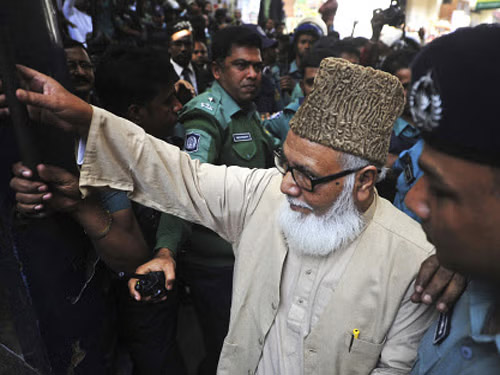DHAKA, Dec 18: On Wednesday, the High Court of Bangladesh altered the death sentence of ULFA leader Paresh Barua to life imprisonment and acquitted a former junior minister along with five others in a 2004 case involving an attempted weapon smuggling operation for the separatist group in northeastern India.
In April 2004, authorities seized 10 truckloads of weapons, despite alleged attempts by influential individuals to facilitate their safe transit to the United Liberation Front of Asom (ULFA) safe havens in northeastern India via Chattogram, then referred to as Chittagong.
The confiscated arms included over 27,000 grenades, 150 rocket launchers, more than 1.1 million rounds of ammunition, 1,100 submachine guns, and 11.41 million bullets.
The two-judge High Court panel modified Barua’s death sentence—which was issued in absentia, as he is believed to be residing in China—converting it to life imprisonment, according to information from a government attorney present at the hearing.
Judges Mostafa Zaman Islam and Nasrin Akhtar also acquitted former state minister for home Lutfuzzaman Babar and six others, who had previously received capital punishment following the death reference proceedings.
The five others spared from execution include former director general of forces Intelligence (DGFI), retired Major General Rezzakul Haider Chowdhury, former managing director of a state fertilizer plant (CUFL) Mohsin Talukder, general manager Enamul Hoque, former additional secretary of the industries ministry Nurul Amin, and Jamaat-e-Islami leader Motiur Rahman Nizami.
The site of the fertilizer plant was reportedly used for the trans-shipment of arms designated for ULFA.
Former chief of Bangladesh’s National Security Intelligence, ex-Brigadier General Abdur Rahim, who had also been sentenced to death, passed away due to natural causes while incarcerated, as his appeal and hearing were still pending.
Nizami, a former minister from the BNP-Jamaat coalition government, was executed years ago for crimes against humanity during Bangladesh’s 1971 Liberation War, having aligned with the Pakistani army while opposing the nation’s independence.
Babar’s lawyer, Shishir Manir, argued that his client was wrongfully implicated for political reasons, noting the prosecution’s failure to present credible evidence or reliable witnesses to support the charges.
The former junior minister had also faced sentencing for a 2004 grenade attack targeting Sheikh Hasina, then the opposition leader and current prime minister, which resulted in the deaths of 24 individuals and injuries to hundreds. However, another High Court panel acquitted him after the death reference hearing on December 1.
In a special tribunal ruling on January 30, 2014, 14 individuals, including two former ministers of the BNP government, two retired army generals, and a senior ULFA leader, were sentenced to death for their roles in the arms trafficking case linked to the seizure of ten truckloads of weapons bound for ULFA hideouts in northeastern India through Bangladesh.
The lower court’s verdict followed nearly a decade after the accidental capture of the weaponry intended for ULFA safehouses in northeastern India.
The two politicians sentenced to death were Babar and Nizami, alongside Barua, who received capital punishment as well. However, the case was delayed for years during the BNP-led government, where Jamaat was a major ally, and law enforcement officials involved in the seizure reportedly faced professional harassment.
In 2008, a military-supported interim government initiated a re-investigation amidst accusations of a cover-up by the previous administration to undermine the case.
The supplementary charges revealed that the arms for ULFA were supervised by certain DGFI and NSI officials while being unloaded at a government jetty in Chittagong before being transferred onto trucks headed for northeastern borders.
Investigators later discovered that the Chinese company NORINCO manufactured the weapons, though they could not trace the vessel that delivered the illegal cargo to Bangladesh. (PTI)


Leave a Reply